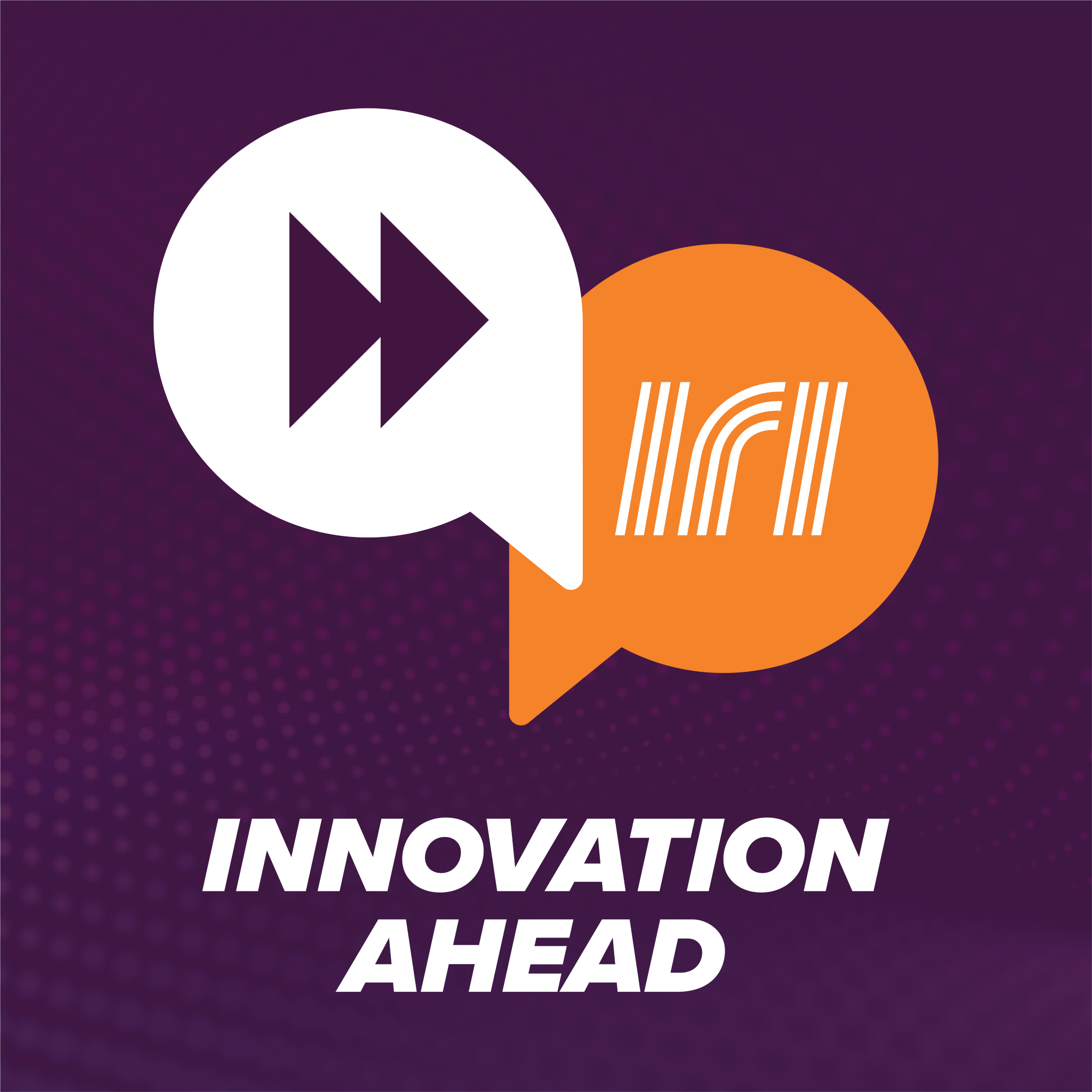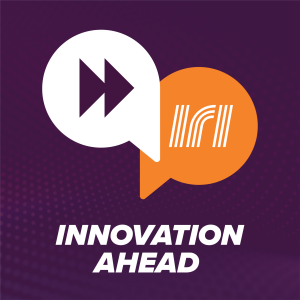
4.9K
Downloads
110
Episodes
Go inside the minds of today’s top innovation leaders. In each episode, IRI spotlights boundary-pushing thinkers shaping the future of innovation. From operational breakthroughs to strategic foresight, get the insights you need to lead with confidence and stay ahead of change.
Episodes

Thursday Nov 20, 2025
Thursday Nov 20, 2025
In this episode, host Lee Green talks with Sean Amirati of Growth Signals about three trends R&D leaders should prepare for in 2026: proof-of-work artifacts that both humans and agents can use, the AI collaboration stack, and agentic workflows (including co-scientist systems). They discuss moving beyond pilots to deliver real value, strategies for workforce adoption and culture change, and practical ways to evaluate and scale AI-driven innovation within R&D.

Wednesday Nov 19, 2025
Wednesday Nov 19, 2025
This IRI podcast episode features Colin Scott of Innventure discussing how R&D leaders can reduce risk, be highly selective, and decide when to stop projects before committing major resources.
Colin explains the needs‑led approach, critical factor assessment, and prioritization techniques, and shares the PureCycle case as an example of successful external commercialization. He closes with a mindset shift: let the market problem, not the technology, drive your decisions.

Thursday Sep 25, 2025
Thursday Sep 25, 2025
In this episode Lee Green interviews Lori Austino, DuPont’s global technology leader, about how the company defines and manages substances of concern. Lori explains the shift from acute to chronic toxicants, the development of internal standards and substance lists, and the principles that guide existing products versus new innovations.
She reviews practical tools, alternatives assessment methods, and a workbook to support R&D decisions, and discusses challenges around supplier disclosure, waste streams, circularity, and avoiding regrettable substitutions. The episode closes with next steps for integrating sustainability into strategic value and ongoing cross-functional collaboration.

Thursday Sep 18, 2025
Thursday Sep 18, 2025
In this discussion, we explore the fast-changing role of modeling and machine learning in formulation design, shifting from a supportive tool to a driving force of innovation. Once a “nice to have,” computational modeling is now reducing reliance on costly, time-intensive experiments and accelerating product development across industries, from consumer goods to aerospace and semiconductors. We’ll highlight how advances in AI/ML and physics-based simulations are helping researchers manage the growing complexity of real-world formulations, bridging the gap between theory and commercial products. Whether you’re a formulation scientist, data enthusiast, or R&D leader, this session sheds light on how digital tools are reshaping the lab and the future of product innovation.

Thursday Jul 24, 2025
Thursday Jul 24, 2025
Join us for an insightful conversation with Thomas Steen, CTO of Nortek Data Center Cooling, as he shares his journey from aerospace engineering to the world of data centers. Discover the challenges and innovations in cooling technologies that are essential for operating today’s massive data centers, vital for AI advancements. Learn about Nortek's pioneering approach to efficiently managing power and water resources, essential to the future of sustainable and scalable data centers. Whether you're a scientist, engineer, or tech enthusiast, this episode offers a deep dive into the evolving landscape of data center infrastructure and what lies ahead.

Thursday Jun 26, 2025
Webinar: Reinventing R&D Knowledge Access & Management with AI
Thursday Jun 26, 2025
Thursday Jun 26, 2025
In this episode, Meetal Desai is joined by Steve Hafif, the CEO of Cypris, to explore the challenges and solutions in knowledge management for R&D teams.
Steve shares his expertise on the integration of AI into research and development workflows, emphasizing the importance of clean data systems and centralized information storage for improved decision-making. He outlines the evolution of AI tools in breaking down data silos, creating efficiencies, and fostering collaboration within organizations.
Listeners will gain a deeper understanding of how Cypris leverages cutting-edge technologies to enhance research capabilities, offering valuable strategies for companies looking to optimize their R&D processes.

Wednesday May 28, 2025
IS 2025 Session: DARPA’s Breakthrough R&D in Materials and Manufacturing
Wednesday May 28, 2025
Wednesday May 28, 2025

Wednesday May 28, 2025
IS 2025 Session: Transforming Waste into Wealth
Wednesday May 28, 2025
Wednesday May 28, 2025
The Innovation Research Interchange podcast delves into the forefront of the innovation ecosystem, focusing on water technology and sustainability. Industry leaders discuss exciting advancements in research and development, including efforts to pilot groundbreaking technologies for extracting and managing critical minerals, and eliminating PFAS from water.
This episode also highlights the importance of workforce development, showcasing various programs designed to create seamless career pathways in the water sector. Collaboration across industries, research institutions, and community partners is emphasized as integral to driving innovation forward, especially in regions rich in natural water resources like the Great Lakes.
Listeners are offered insights into how strategic partnerships are fostering an environment ripe for innovation and how investing in infrastructure and R&D is essential for a sustainable future. Key speakers provide a comprehensive overview of the critical, multidisciplinary challenges and opportunities in the quest for water sustainability.

Wednesday May 28, 2025
Wednesday May 28, 2025

Wednesday May 28, 2025
